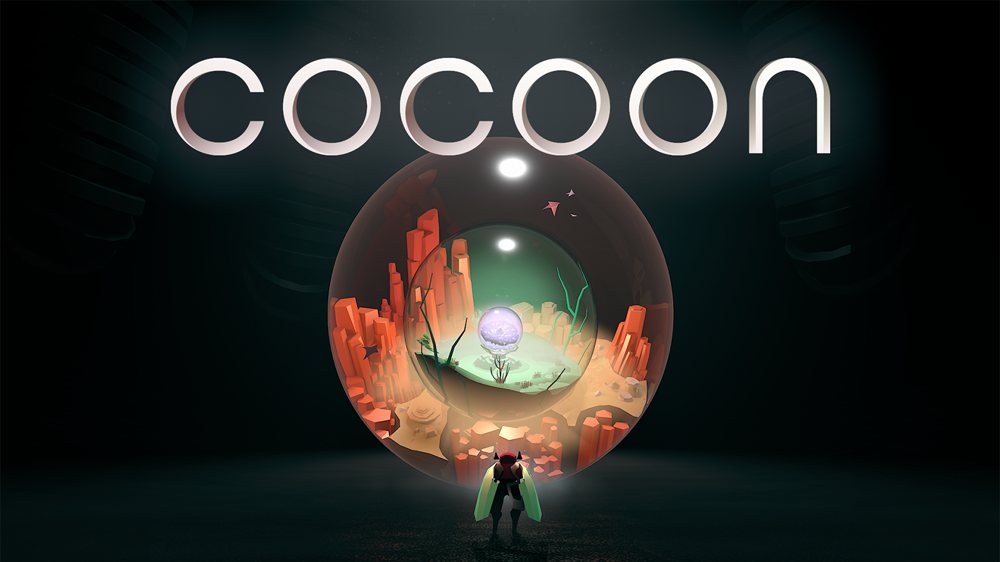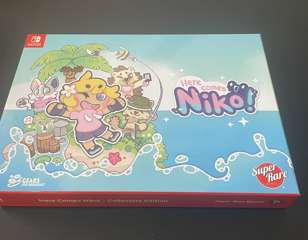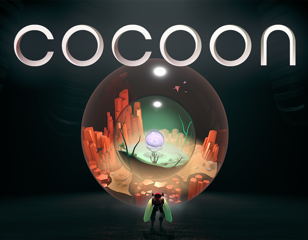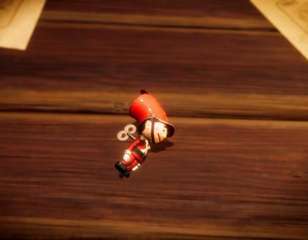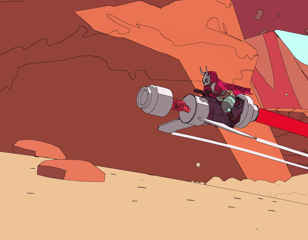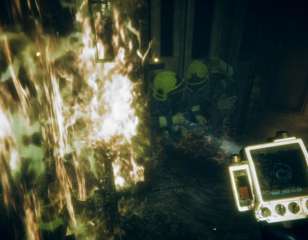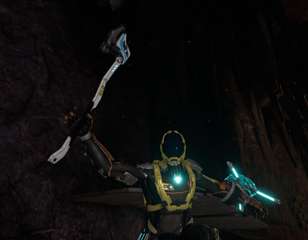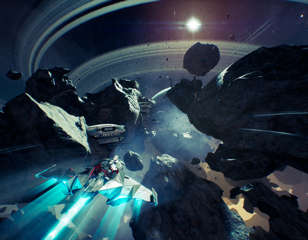Chorus Review: "Mechanically Sound, Narratively Lacklustre"
An ambitious attempt to combine visceral space combat with a meaningful story tackling guilt. Does Deep Silver Fishlabs deliver in Chrous? Find out in our review of Chorus.
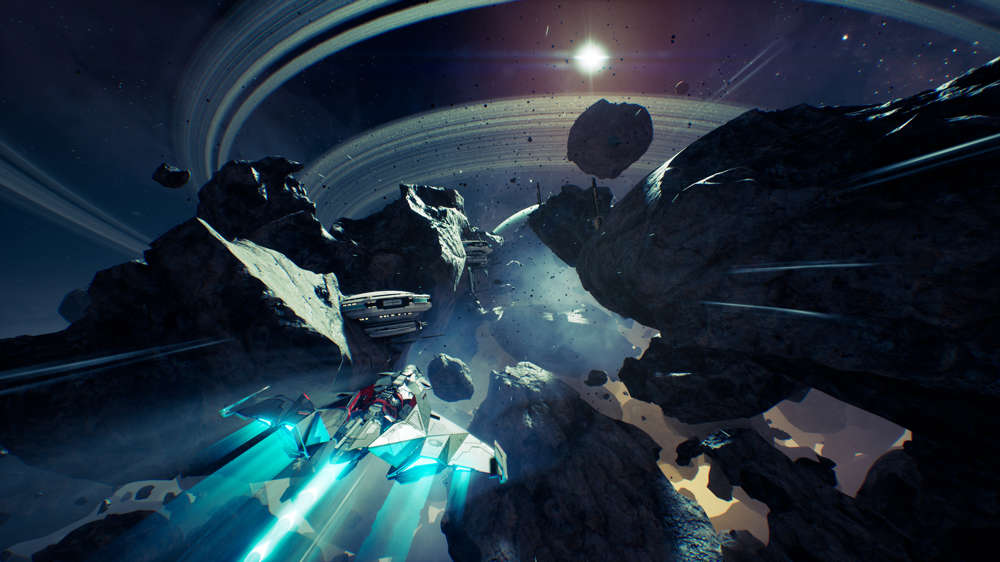
A 3rd person space shooter in the vein of Everspace or Freelancer, Chorus attempts to have the slick, visceral space combat of a space flight sim while also telling a genuine story about the effects of guilt. This is a genre with very few strong entries, so the semi-open world and 10+ hour story campaign are promising features, if executed correctly. Exploring the galaxy, finding upgrades for your ship, completing side missions and honing your skills as a fighter pilot are all part of the package, but how well does the game live up to its potential as a narrative-focused space opera?
I’ve Got A Bad Feeling About This

Chorus sees you take control of Nara, along with her sentient spaceship, Forsaken. Nara was once an elite pilot and religious zealot for the Circle but is now living in exile attempting to deal with the guilt she feels for her past actions. Unfortunately, the game doesn’t tackle this element effectively and most of the story beats ultimately fall flat. The character of Nara is decent enough, the problem is that she never interacts with any other characters, Forsaken aside.
There is a moment early on when a character sacrifices themselves and the game attempts to play it as a very serious heartfelt moment... except this character is never actually seen in person and Nara’s limited interactions with them were over the radio. As a result, this scene completely misses the mark and comes across as laughable. This problem extends to the rest of the characters too; the only time you interact with them is by flying over to their ship and speaking via radio. A small picture of the person pops up in the bottom right, a mechanic also used by indie-cyberpunk game Cloudpunk, but where that succeeded in giving the characters emotion and feeling, Chorus fails to replicate it.
Another element that landed flat on its face is the whispery inner monologue Nera is plagued by, a la Hellblade: Senua's Sacrifice. Thanks to it never actually adding anything that isn't immediately obvious from the context of the story, it was an annoying background noise more often than not.
The best and only real character moments are between Nara and Forsaken, a dynamic similar to BT from Titanfall 2 or Camus from the aforementioned Cloudpunk. However, Forsaken is nowhere near as likeable or memorable. Instead, he is mostly relegated to being a force in Nara’s ear telling her that she “can do this” and to “be true to yourself”. There was an attempt to create an interesting dynamic between the two, with Forsaken being (rightfully) annoyed at being left to collect dust for the seven years Nara was in hiding, but this dynamic extends to a single mission with one cutscene before being promptly forgotten for the most part, aside from a final climactic moment that was too little, too late.
I Feel The Need, The Need For Speed

Chorus features responsive, albeit limited, flight controls that anyone should be able to pick up fairly easily - you can aim your fighter and control the speed you are travelling, but you cannot roll the fighter or use thrusters to adjust the position of your craft laterally or vertically. As a result, those looking for a more in-depth space shooter like Elite Dangerous or Star Citizen should look elsewhere because this has favoured arcade-style flight mechanics over being too complex.
Throughout the story, Nara regains access to her “Rites”, a number of special powers that allow her to channel energies from the aether to change reality around her, which start to spice up the flight and combat mechanics, but since they're not available from the get-go, it's slow going for a while. For example, once unlocked, you can use the Rite of Hunt as a teleport to get behind enemy ships or the Rite of the Star to blast forward like a shooting star destroying all those in your path.
Three weapon types are available: Gatling guns (used to take down a ship’s hull), lasers (used to take down a ship’s shields), and missiles (used to take down a ship’s armour). While different versions of these weapons can be unlocked and upgraded throughout the game, you're only ever limited to these three weapon types, which feels limiting given the far-future sci-fi possibilities that could be explored. Again, Nara’s Rites do make up for this somewhat as a few of the Rites can be used offensively, but the lack of weapon diversity still leaves you wanting more.
Combine the piloting, powers, and unlockable weapons together and you reach the point where Chorus shines. It takes some time to reach that though, thanks to not having most of the Rites available from the start. You can always employ the same strategy for foes too, no matter which type you're against: shoot them in the face. Alternate methods to dispose of enemies would help prevent the combat from getting stale, alas it's not to be.
Upgrades, People, Upgrades

It wouldn't be a true space game without the ability to upgrade your ship and in Chorus, these modifications come by completing missions or purchasing them from hangars. Finding entire sets of mods for significant stat bonuses can be worth it, but outside of these, the benefits are fairly small: a 5% buff here, 10% reduction there, etc. Most of the power growth in the game comes from the new weapons and Rites you can find, along with mastery challenges such as destroying a certain number of enemies with a specific weapon. In return, you'll receive a permanent boost to your stats.
You won't find any cosmetics to equip on your ship though, despite there being so many gameplay modifications available. You can't unlock liveries, paintjobs, or anything of the sort, so you'll be stuck with the colour of your cold, hard metal. Thankfully, the game does look gorgeous, with detailed textures and impressive skyboxes, so maybe it's a good thing there aren't any flashy liveries to detract from the space atmosphere.
Visually, the most impressive parts are the cutscenes, though they're few and far between and tend to only focus on Nara. With that in mind, the voice actor does a fantastic job at carrying the dialogue, which is something that can't be said for the rest of the cast, or the audio in general. Epic space battles should come with a certain amount of oomph, which Chorus is completely lacking.
Mechanically Sound, Narratively Lacklustre

Chorus offers a fairly middling take on a space combat shooter. The gameplay is really where Chorus shines, when you combine piloting, powers, and weapons in just the right way, you can reach a sweet spot that makes the game a delight to play. It just takes too long to reach this point, so you'll likely lose interest before then. If you enjoy space flight games there is almost certainly something here for you to enjoy as the minute to minute action in Chorus is mechanically sound, it's just been done better elsewhere (see: Elite Dangerous, Everspace 2). The real shame of Chorus is that the story can’t match the excitement of the gameplay. Lacking any real characters, the game relies on Nara and Forsaken, and unfortunately, their dynamic is so underdeveloped that it makes the climax of the game feel undeserved. Nara’s journey to overcome her guilt is an interesting one, however, the game doesn’t do enough to capitalise on the promising premise.
3/5
Reviewed on PC. Code provided by the publisher.
Comments




